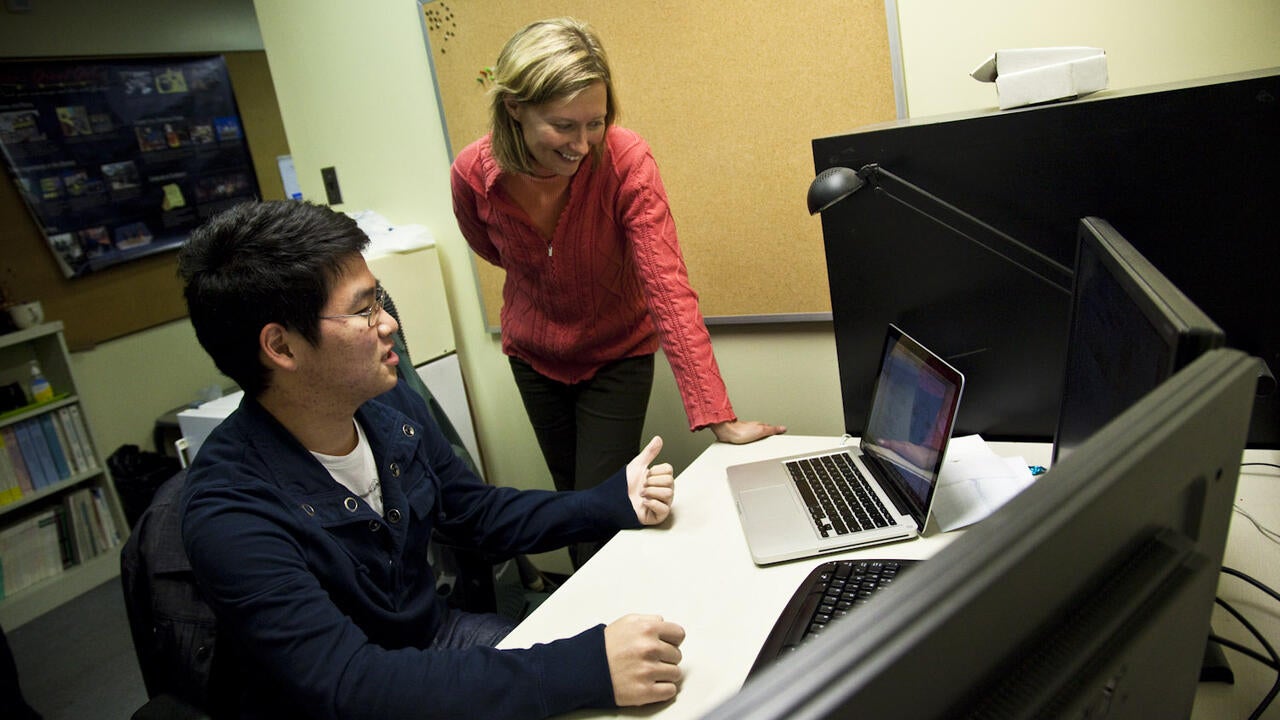
Engineering professors named new Canada Research Chairs
Researchers aim to advance human-centred design of health care technologies and water security

Researchers aim to advance human-centred design of health care technologies and water security
By Carol Truemner Faculty of EngineeringTwo Waterloo Engineering faculty members have been awarded inaugural Tier 1 Canada Research Chairs.
Catherine Burns, a systems design engineering professor, is the new Canada Research Chair (CRC) in Human Factors in Healthcare Systems.
Burns, who is the executive director of the University of Waterloo’s Centre for Bioengineering and Biotechnology, will receive $1.4 million over seven years to develop human-centred approaches to the design and implementation of advanced health care technologies.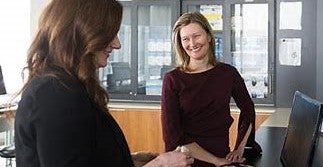
Catherine Burns, right, is the first CRC in Human Factors in Healthcare Systems.
Burns and her research team are investigating how to improve health care situation awareness, patient trust, and clinician workloads and patterns using Cognitive Work Analysis, a framework that models the complex ways in which people and technology interact in workplaces.
The researchers are working closely with clinicians, patients and technology experts on the design and development of transformative health technologies.
Monica Emelko, a civil and environmental engineering professor, is the first Canada Research Chair in Water Science, Technology and Policy.
She will receive $1.4 million over seven years for research into ensuring water security in Canada.
Emelko, who is the director of the University’s Water Science, Technology and Policy Group focused on drinking water supply and treatment and a member of its Water Institute, was the 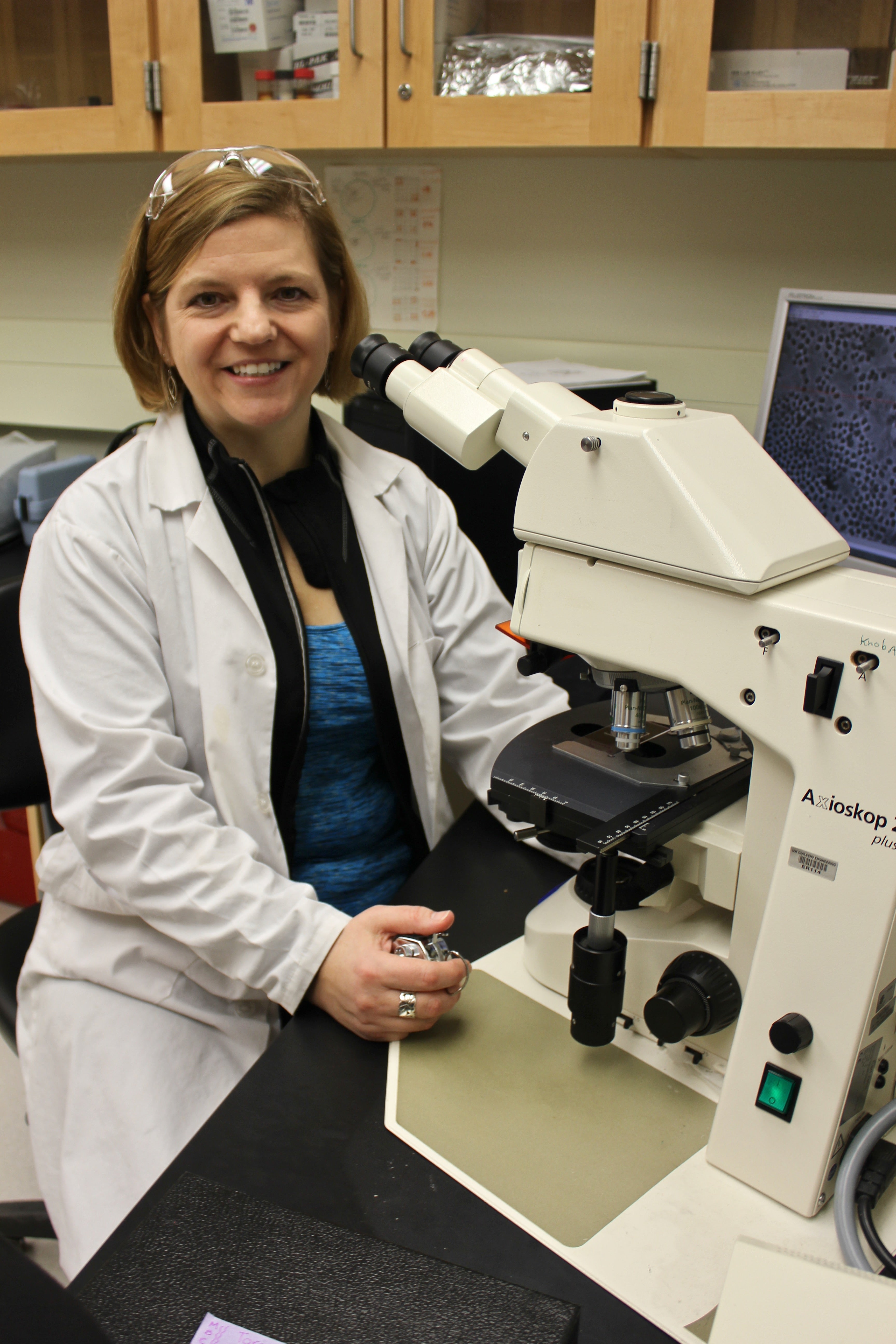 first researcher to identify climate change–associated threats to water security, such as the deterioration of and fluctuations in water quality after wildfires and floods.
first researcher to identify climate change–associated threats to water security, such as the deterioration of and fluctuations in water quality after wildfires and floods.
Currently, she and her research team are investigating the role of both “grey” in-plant treatment and “green” forest management-based technologies to address water quality challenges. Their findings will help inform water treatment technology innovation for adaptation, resilience and decision-making.
Monica Emelko is the new Canada Research Chair in Water Science, Technology and Policy.
Emelko has served as a technical advisor to the US National Academies of Engineering, Science, and Medicine as well as several federal and provincial/state agencies in Canada, the United States, and Australia regarding regulatory development of drinking water treatment, source water protection and integrated resource management.
Burns and Emelko were among nine across the Waterloo campus to be named new or renewing chairs by the federal government in a December 16 announcement, which marked the 20th anniversary of the CRC program.
Across the country, $195 million in funding was announced for a total of 259 new and renewed CRCs to help attract global talent and increase diversity. Together with the chairs announced earlier this year, the total investment is the program’s largest in a single calendar year.
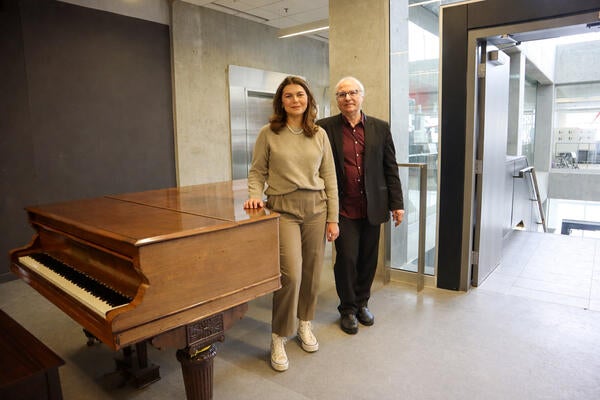
University of Waterloo researchers Olga Ibragimova (left) and Dr. Chrystopher Nehaniv found that symmetry is the key to composing great melodies. (Amanda Brown/University of Waterloo)
Read more
University of Waterloo researchers uncover the hidden mathematical equations in musical melodies
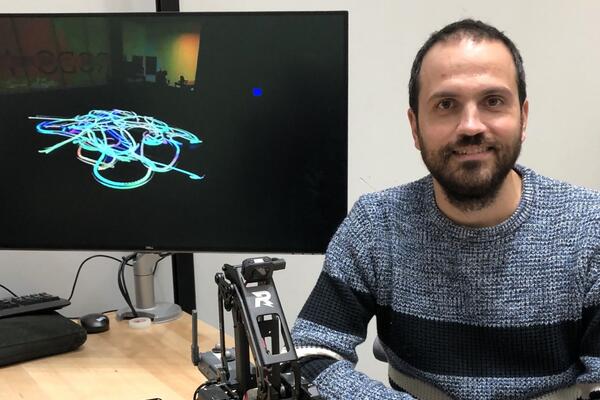
Read more
Robots the size of a soccer ball create new visual art by trailing light that represents the “emotional essence” of music
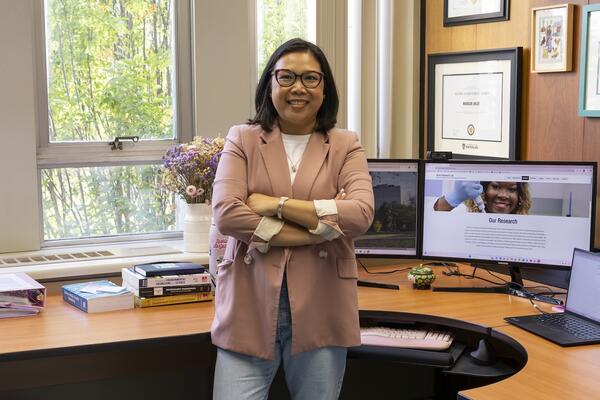
Read more
Waterloo prof leads a team of researchers to improve water quality through a community-focused approach underpinned by technical excellence
The University of Waterloo acknowledges that much of our work takes place on the traditional territory of the Neutral, Anishinaabeg, and Haudenosaunee peoples. Our main campus is situated on the Haldimand Tract, the land granted to the Six Nations that includes six miles on each side of the Grand River. Our active work toward reconciliation takes place across our campuses through research, learning, teaching, and community building, and is co-ordinated within the Office of Indigenous Relations.